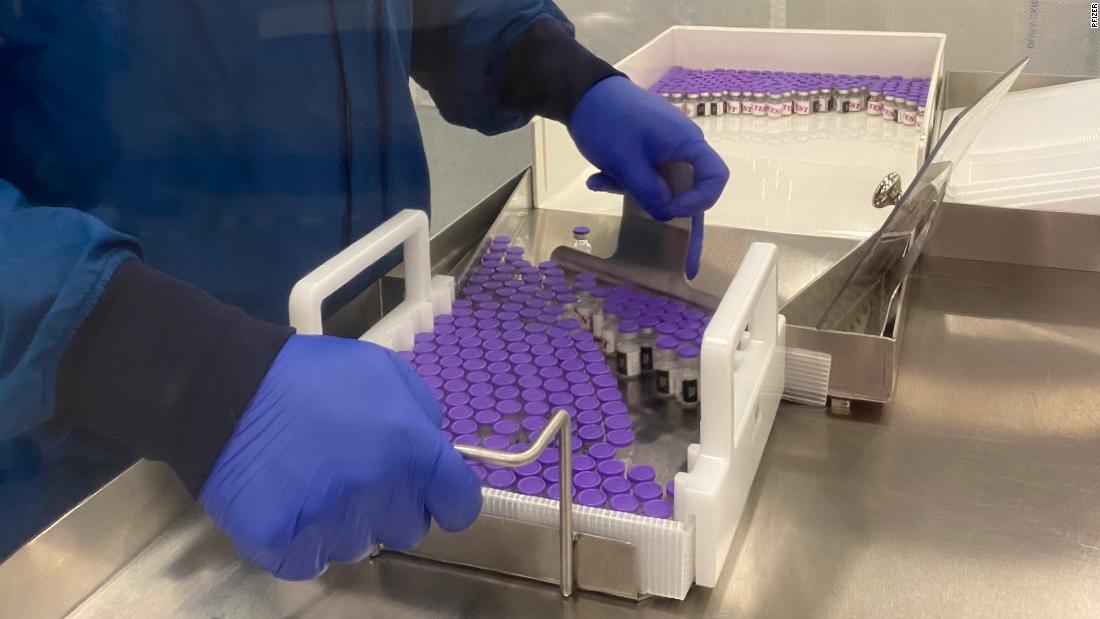The Immunization Practices Advisory Committee voted to include both groups in what they call Phase 1A of the Centers for Disease Control and Prevention’s Coronavirus Vaccine Distribution Plan.
The Centers for Disease Control and Prevention (CDC) said: “Long-term care facility residents are defined as adults residing in facilities that provide a variety of services, including medical and personal care, to people who are unable to live independently.”
“Health care workers are defined as paid and unpaid persons serving in health care settings and have the potential for direct or indirect exposure or infectious substances.”
The Center for Disease Control (CDC) says residents of long-term care facilities account for 6% of coronavirus cases and 40% of coronavirus deaths in the United States. The Centers for Disease Control and Prevention says more than 240,000 health care workers have contracted the coronavirus and 858 people have died.
The one-on-one vote against the recommendation came from Dr. Helen Cape Talbot of Vanderbilt University, who said she was concerned about the vaccine not being studied in residents of long-term care facilities.
“We hope it will succeed and we hope it will be safe,” Talbot said at the meeting. “This worries me on several levels.”
She later added, “I have no reservations about health care workers who take this vaccine.”
Early data on Pfizer and Moderna vaccines indicate that both are very safe and effective, as they both prevent 95% of symptom infections in people who volunteered to test them, according to the companies.
Dr Jose Romero, who chairs ACIP, said he believes residents of long-term care facilities are at exceptional risk.
“Our discussions were transparent and our motives were clear,” Romero said after the vote.
“We are seeing an increasing number of health care providers who have become infected, and unfortunately some of them have died,” added Romero, Secretary of Health at the Arkansas Department of Health.
“I believe my vote reflects the maximum benefit, the minimum harm, promotes equity and mitigates the health inequalities that exist regarding the distribution of this vaccine.”
Dr. Robert Atmar of Baylor College of Medicine said he initially had concerns about placing residents in long-term care facilities in the first group.
“In the end, I am convinced of the tremendous burden in terms of deaths and hospitalizations that the residents of these facilities bear, the remarkable efficacy that was initially reported and that we will ultimately have an opportunity to review … the monitoring plans of safety in this population and the extra mile that will be followed to make sure Ensure that the population and their families will be fully informed of the amount of evidence available before the population receives the vaccine. “
The next meeting comes after the Food and Drug Administration advisers, known as the Vaccines and Related Biological Products Advisory Committee or VRBPAC, met on December 10 to decide on Pfizer’s application for an EUA agreement, said ACIP’s executive secretary, Dr. Amanda Cohen.
“We expect the next meeting of the Intellectual Property Advisory Committee to take place sometime after the VRPBAC meeting,” Cohn said. ACIP will vote to recommend whether any vaccine authorized by the FDA should actually be given to anyone in the United States.
The Centers for Disease Control and Prevention (CDC) and ACIP are studying a four-stage plan for ultimately allocating vaccines. Phases 1B and 1C are likely to include essential workers such as food production workers who are at risk of infection, as well as emergency personnel and possibly people most at risk of coronavirus complications and death.
The federal government expects that 40 million doses of the vaccine could be available in the United States by the end of December if the Pfizer and Moderna vaccines are approved.
All 40 million doses will not be immediately available, said Dr. Sarah Oliver of the Center for Disease Control and Prevention, at a meeting Tuesday.
“We expect a restricted supply environment,” Oliver said.
Oliver said the CDC expects between 5 million and 10 million doses to become available each week for the first few months as vaccine makers ramp up manufacturing.

Communicator. Reader. Hipster-friendly introvert. General zombie specialist. Tv trailblazer

